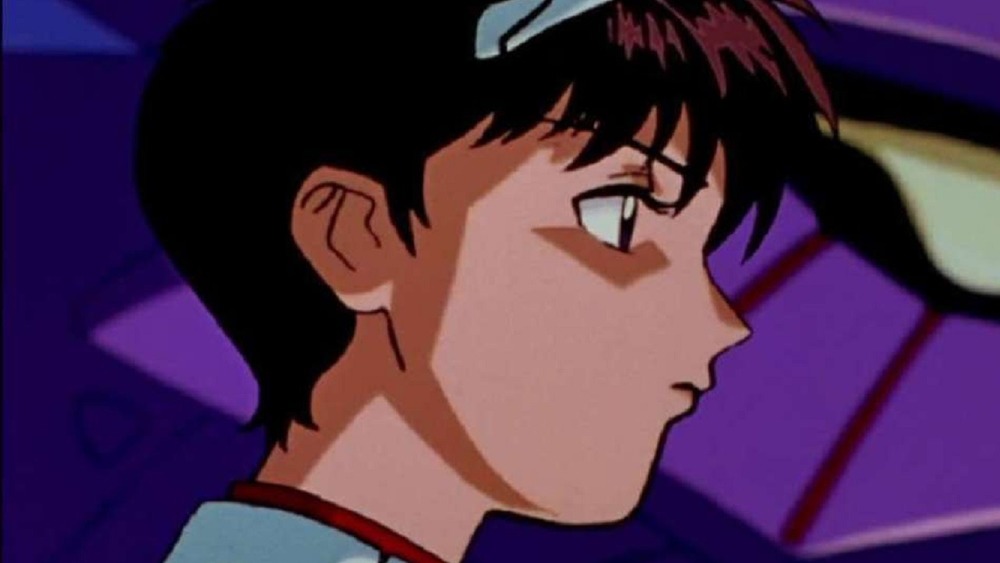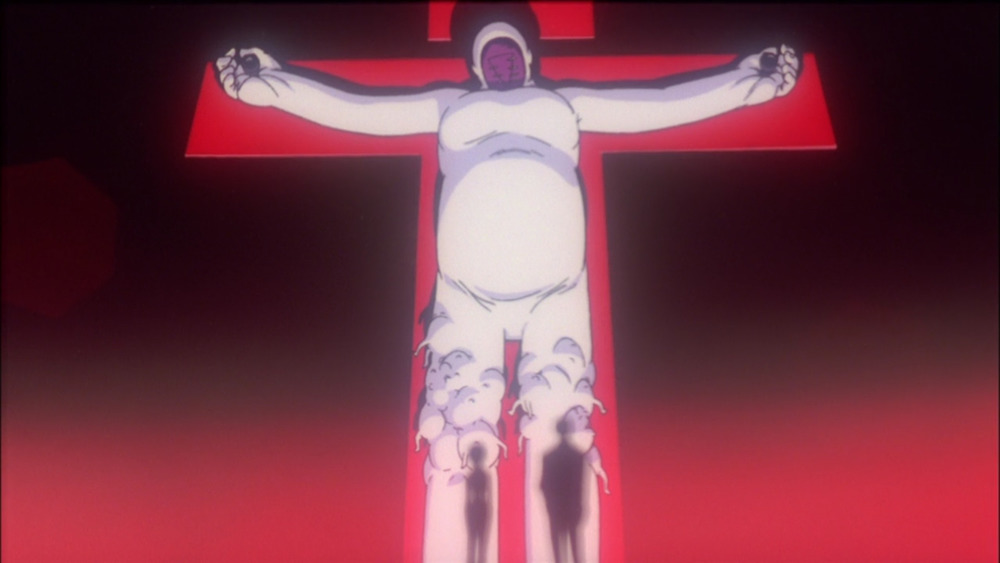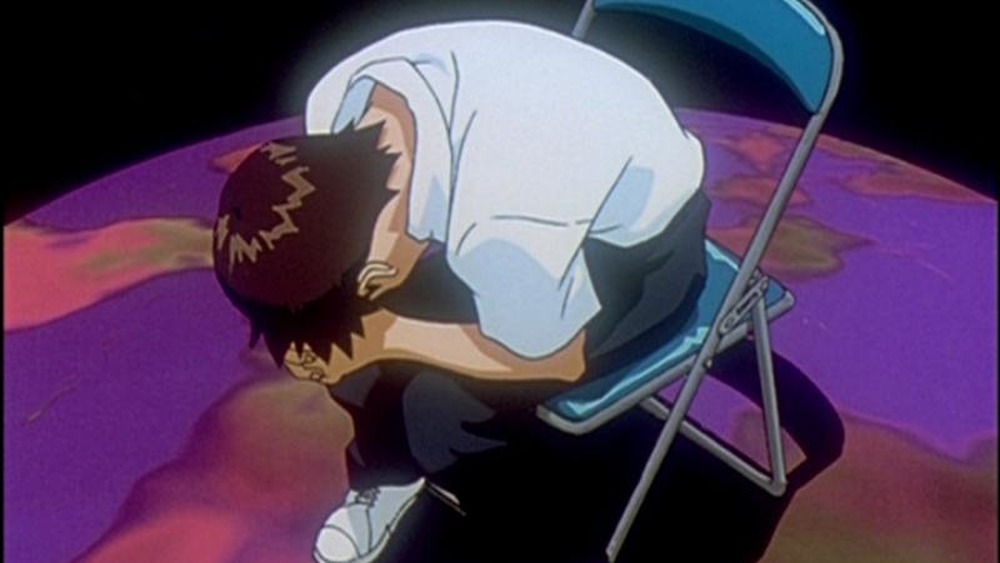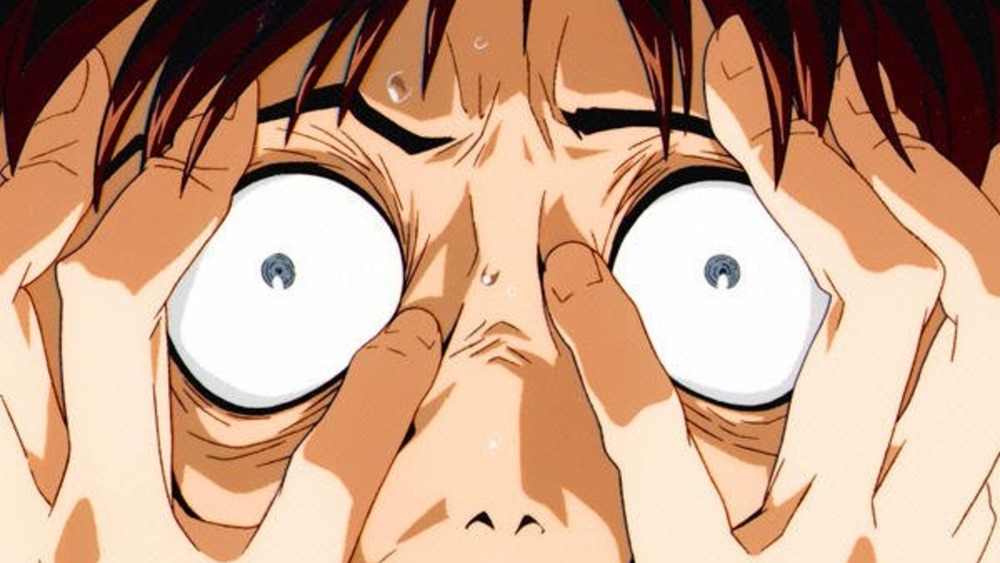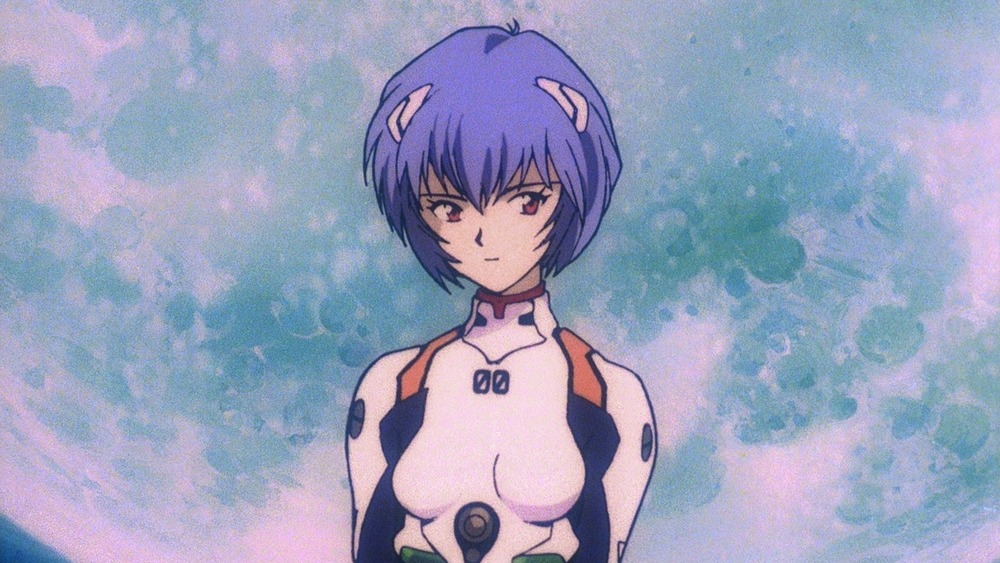The Ending Of Neon Genesis Evangelion Explained
Anime fans who have come to the end of Neon Genesis Evangelion are likely confused. The mecha anime series, which starts as a pretty conventional story about mech-pilots fighting giant monsters, does something of a pivot in its back half to tell a completely different story. By the end, things have gotten very strange, and the real world of Tokyo-3 that viewers believed they were watching seems to melt away almost completely.
In its early going, Neon Genesis Evangelion follows Shinji, one of the young people who is skilled enough to pilot EVAs — enormous mechs that are humanity's only hope of battling back the angels that are destroying the planet. Eventually, Shinji is joined by Rei and Asuka, two girls who are roughly his age and are also skilled EVA pilots. As the show progresses, the battles between EVAs and angels become rarer, and are replaced by meditations on the show's central characters and their various weaknesses.
A new angel appears in Neon Genesis Evangelion
In Neon Genesis Evangelion's final episodes, we're introduced to Kaworu Nagisa, a boy who appears to be another EVA pilot. He is eventually revealed to be an angel that has come to initiate the Third Impact, an ominous event that's referred to throughout the series and may lead to the end of humanity.
Kaworu travels down Terminal Dogma, expecting to find Adam, the source of all the angels that Shinji has battled over the course of the series. Instead, Kaworu finds Lilith, the source of humanity, pinned to a cross. NERV, the organization that created the EVAs, has been using Lilith for experiments, in addition to creating Unit-01 — which Shinji pilots — out of her body. The rest of the EVAs were created as clones of Adam. After Shinji battles Unit-02 — which is being piloted by Kaworu — his adversary asks Shinji to kill him, and Shinji complies with the request.
Neon Genesis Evangelion shows the beginning of Human Instrumentality
Throughout Neon Genesis Evangelion, there are veiled references to the Human Instrumentality Project, but it's only after Kaworu's death that we see what it really is. The project's goal is to bring about the Third Impact under human control, and unite all of humanity at a transcendental level. This new level of existence would force every person's soul to live as part of a larger whole. It's an artificial evolution of humankind.
The show's final episodes take place in this conceptual level of reality. After Shinji kills Kaworu, the show adopts a totally different animation style filled with abstract imagery, and we see Shinji sitting in a chair in a dark room. We watch as he's tormented by unseen voices, and the episode transforms into an examination of his mental state. The episode also deals with Rei and Asuka, who have their own emotional baggage related to their relationships with their parents and their existence in the world.
Neon Genesis Evangelion is about dealing with depression
The abstract reality interrogates Shinji about his reasons for piloting the EVA, and Asuka is forced to take responsibility for her own difficulties piloting Unit-02. Rei, meanwhile, cannot understand an idea of self that is separate from those around her. We also discover that she's a clone made from a chunk of Shinji's mother's soul and remains, as well as some of Lilith's DNA. In episode 26, the animation style changes yet again as Instrumentality continues. Now, all of the characters are crudely hand drawn, and Shinji appears against a totally white backdrop. Although Instrumentality initially seems quite appealing to Shinji, in part because of the ways that it can compensate for his individual flaws, he eventually realizes that he wants to live for himself. He understands that he's not perfect, but finally comes to a place of self-acceptance in which he can face his own fears.
The series ends with all of Shinji's friends standing around him and congratulating him for arriving at this conclusion and rejecting Instrumentality. It's a sentimental but heartwarming scene, one that intentionally parallels creator Hideaki Anno's own struggle with depression (via Polygon). The show's focus shifted in part because of Anno's interest in psychology, but its ending is ultimately an uplifting one: Shinji realizes that he must exist for himself, even if he continues to rely on others in the way that all people do.
Neon Genesis Evangelion's ending sparked heated controversy
Although the ending is fulfilling for Shinji's character arc, many fans of the series had trouble understanding what the show was depicting in its final episodes. Because we are seeing the events of Human Instrumentality from the character's perspectives, the narrative does not explicitly spell out what is happening. It's only after the fact, in alternate and complementary endings — like Neon Genesis Evangelion: Death & Rebirth and End of Evangelion — that viewers get a better understanding of what is happening inside the show's world.
Not everyone loves Neon Genesis Evangelion's polarizing final episodes, but they are part of what allowed the show to garner a reputation as one of the most daring, character-based anime shows to ever exist. Neon Genesis Evangelion proved to be hugely influential thanks to the risks it was willing to take to tell the story of one lonely boy who chooses the beauty and terror of being human, even if it means heartache.
